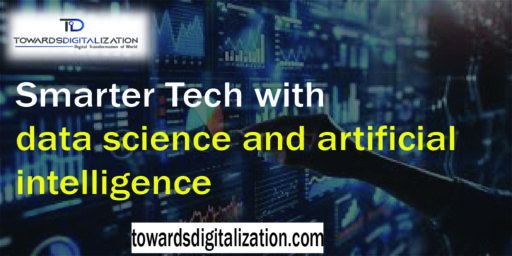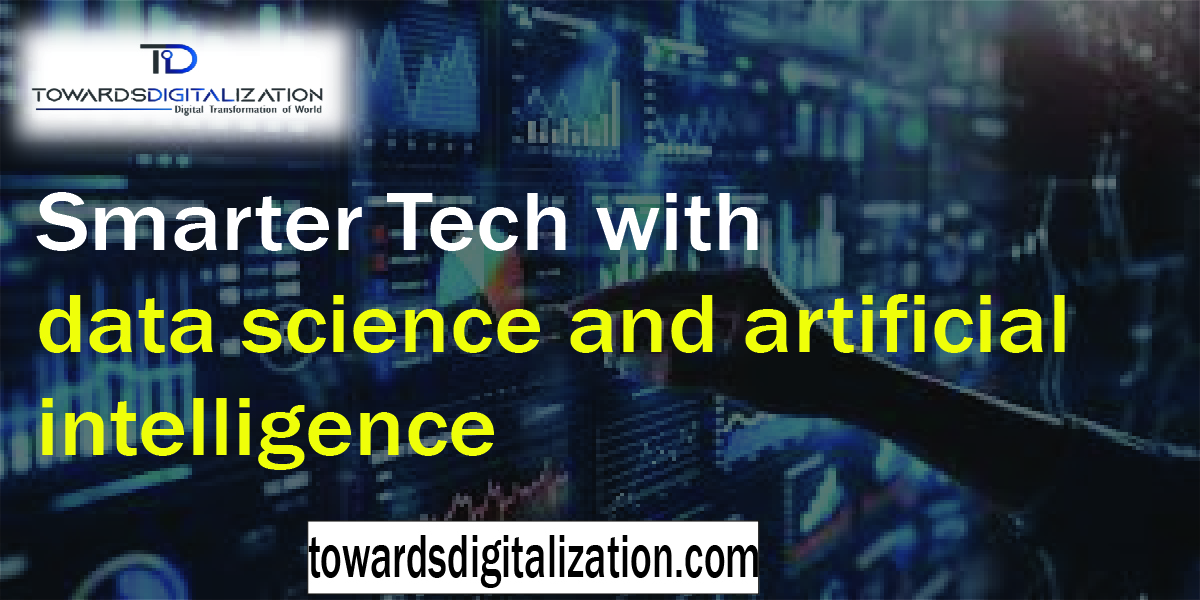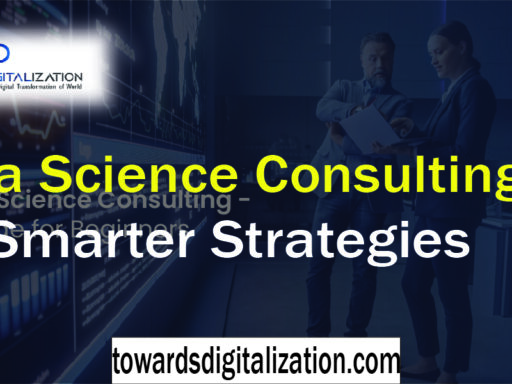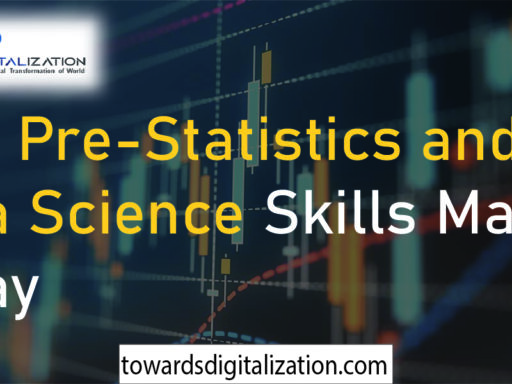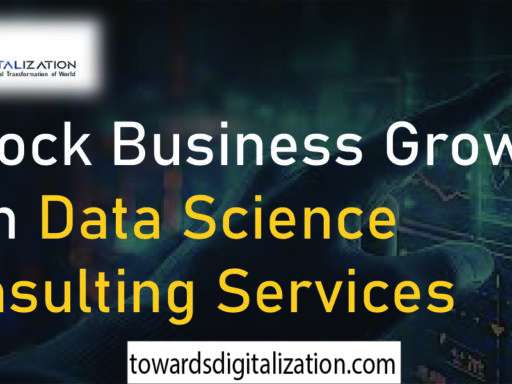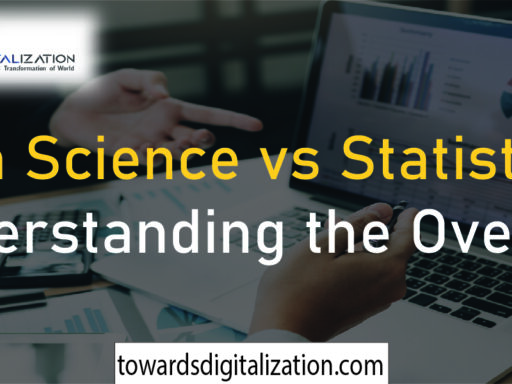Introduction
The data science and artificial intelligence have become powerful forces that are revolutionizing industries today. Data science specializes in extracting insights from large amounts of data by employing statistical techniques such as machine learning and analytics; artificial intelligence seeks to replicate human intelligence so as to complete complex tasks effectively.
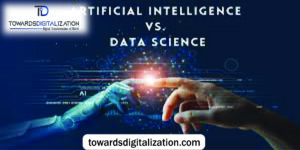
As technology develops further, data science and AI models become ever more closely intertwined. AI uses data-driven models as its foundation, giving businesses an efficient means of automating decisions, improving processes and creating personalized experiences more quickly than ever before.
Companies, financial institutions, healthcare providers and governments alike are turning to AI technologies for real-world problems – driving up demand for experts with data science expertise and AI knowledge.
Data technology and AI are not only revolutionizing our lives and work environments, but are also creating the path toward an ever more intelligent and productive future.
Understanding of data science and artificial intelligence
Data Science
Data science is an inter-disciplinary field that draws from statistics, computer science and domain knowledge. The Data scientists employ various software and programming languages such as Python, R and SQL in order to collect, process, analyse and interpret large amounts of structured and unstructured information in order to obtain actionable intelligence.
This Data science goes far beyond merely studying past trends. It also plays an integral part in forecasting future ones. Retail industry companies use data science to identify their customers’ purchasing habits, optimize inventory levels and increase customer satisfaction.
Key Components of Data Science
The Data science effectiveness depends upon several components:
- Data Collection: Organizations collect information from various sources such as social media platforms, sensors, transaction records and more.
- Data Cleaning: Before conducting analysis on any data set, it must first be cleaned and formatted to remove inconsistencies and ensure consistency across the board.
- Exploratory Data Analysis (EDA): Exploratory Data Analysis helps uncover patterns, anomalies, and relationships within data.
- Model Creation: Data scientists utilize statistical and machine learning techniques to build models in order to recognize trends and make predictions.
- Interpretation: Finally, results are interpreted and visualized to inform decision making and inform future initiatives.
Defining Artificial Intelligence
Artificial intelligence differs from traditional data sciences in that its focus is on creating systems to accomplish tasks typically associated with human intelligence, such as understanding natural languages, recognising images, making decisions, or gathering knowledge through experiences. AI draws inspiration from fields like cognitive science, robotics and neuroscience.
As technology has advanced, artificial intelligence (AI) has evolved from rules-based systems to machine learning (ML) and deep-learning (DL). Through this development process, it has accomplished amazing feats in facial recognition, speech recognition and autonomous vehicles.
Major Divisions of AI
Artificial intelligence encompasses a variety of specialization areas:
- Machine Learning (ML): Enabling computers to learn from data over time without being explicitly programmed is called Machine Learning, or simply “ML.”
- Natural Language Processing (NLP): Enabling computers to comprehend how humans communicate and respond.
- Computing Vision: Allowing systems to understand visual data.
- Robotics: The process involves developing intelligent robots capable of carrying out real world tasks.
Interplay Between data science and artificial intelligence
The data science and artificial intelligence may seem like separate fields, yet they’re inextricably linked and provide each other with valuable benefits. Data science provides the basis for AI algorithms by providing relevant, clean and well-structured data sets. AI enhances this process by automating it and detecting patterns humans could miss.
Machine learning models rely on massive datasets compiled and processed by data scientists, while tools like AutoML assist in the creation of predictive models more quickly and efficiently.
Data science allows AI to gain insights that mimic thought processes and inform decisions – an alliance which has given rise to smart applications in fields ranging from personalized recommendations on Netflix to the detection of fraud in banking.
Real-World Applications
1. Healthcare
In healthcare, data science and AI work hand in hand to enhance patient outcomes. Data scientists utilize electronic health records in order to detect patterns and risk factors while AI models help doctors diagnose ailments and suggest treatment solutions.
IBM Watson Health leverages both medical and scientific disciplines to analyze medical literature and offer research-backed advice.
2. Finance
The financial industry makes extensive use of these tools to detect fraud, evaluate credit risk and optimize trading strategies. Data science helps uncover irregularities in transactional data while AI algorithms predict market behavior to optimize financial processes.
Robo-advisors such as Betterment and Wealthfront use artificial intelligence to tailor investment strategies based on an individual’s preferences and market developments.
3. Retail
In the retail industry, companies utilize data science to analyze customer preferences and purchase patterns. AI chatbots also provide real-time customer service while recommendation engines enhance the customer experience.
Amazon utilizes AI and data science in order to recommend products, improve logistics and monitor inventory in an on-going fashion.
4. Transportation
AI and data science play a pivotal role in the transport industry, providing predictive analytics tools to optimize schedules and routes while AI drives self-driving cars.
Tesla and Uber continue to advance autonomous vehicle technology by using real-time data collected via sensors and AI algorithms.
5. Education
Data science and artificial intelligence can analyze student performance and learning patterns. AI then customizes learning experiences while streamlining administrative tasks.
Coursera or Khan Academy provide personalized learning pathways based on user engagement and information regarding performance.
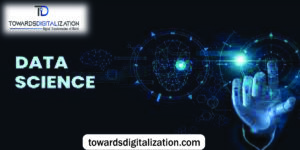
Benefits of Integration
Businesses can realize many advantages from combining data science and AI technologies.
- Enhanced Decision-Making: AI Models Support Improved Decision-Making AI models analyze large volumes of data, providing greater insight for making more strategic decisions.
- Process Automation: Automating repetitive tasks enables employees to focus on developing fresh concepts.
- Personalization: Personalization companies can deliver experiences tailored to individual preferences.
- Predictive Analytics: Enabling us to anticipate market trends more accurately.
- Cost savings: Efficient data processing and AI-powered automation help lower operational expenses.
Challenges and Limitations of data science and artificial intelligence
But integration isn’t without its challenges. Quality data remains an issue; unreliable or inadequate data may compromise AI algorithmic performance and ethical concerns like data privacy, algorithmic bias and job displacement are still sparking heated discussions.
Implementing AI or data science applications will require extensive technical know-how and infrastructure investments; smaller businesses may find it impossible to compete against larger tech firms who dominate this space.
Key Skills and Career Opportunities
Careers in AI and data science are on the rise, due to a surge in demand. Professionals must possess skills like:
- Programming (Python, R and Java)
- Deep learning and machine frameworks (TensorFlow and PyTorch) for learning offer powerful methods for AI research and machine applications.
- Tools for data visualization (Tableau Power BI and Tableau)
- Mathematics and statistics go hand-in-hand.
- Cloud computing platforms (AWS, Azure and Google Cloud)
Data scientists, AI experts, machine-learning specialists, and business intelligence analysts are some of the most in-demand roles today.
Future of data science and artificial intelligence
Future developments
The Future of data science and artificial intelligence continue to accelerate at an impressive rate, as industries adapt to digital disruption and companies increasingly rely on these technologies for insight to automate tasks or address tough problems. Therefore, data science in conjunction with AI is shaping our global economy in profound ways.
Data science and artificial intelligence plays a pivotal role in processing vast quantities of information. Artificial Intelligence transforms that information into intelligent actions that drive development across healthcare, finance manufacturing, education and space exploration – for instance AI-powered diagnostic systems assist doctors in early detecting illnesses while predictive models help financial analysts forecast market developments more precisely.
Real-time data analytics
Real-time data analytics have enabled faster and smarter decision-making by businesses. No longer must they wait for quarterly reports – instead using real-time dashboards powered by machine learning algorithms for instant strategic decisions that have increased productivity while improving customer experiences across different sectors.
As part of their advancements, generative AI as well as large languages and image generators mark a major turning point. These systems now produce music, code, content and art; showcasing how machines have advanced beyond human capabilities while their roles shift from execution to management and innovation.
Ethics and privacy
Ethics and privacy will remain top of mind as AI technological innovations advance, so institutions and government agencies must implement accountable AI methods that guarantee fairness and transparency, fill the skills gap by investing in training or education programs tailored specifically for data-driven technologies, and implement accountable methods that guarantee fairness and transparency.
Edge computing and Internet of Things (IoT) devices will extend AI and data science well beyond traditional centralized systems, making these technologies critical components in smart cities of the future, autonomous cars, healthcare devices that connect seamlessly, smart cities that utilize shared transportation services, healthcare devices that work on real time or connected cities that operate without disruption in real-time environments.
Data science and artificial intelligence will not only increase innovation in business, but will also have profound effects on society as a whole. As more companies embrace AI-powered strategies, there will be changes in job profiles as well as career pathways presenting themselves across every field of endeavour.
Conclusion
The data science and artificial intelligence are now the cornerstones of digital revolution. While data science creates value from its collection, AI taps into this to inform intelligent decisions across sectors and create better systems and more informed choices through collaboration with it.
As we create more data and encounter ever more complex challenges, the importance of technology increases exponentially. Therefore, organizations and individuals must invest in necessary skills, infrastructure and ethical frameworks in order to harness its full potential – ultimately using its synergy between technology and data sciences AI for creating an intelligent, interconnected and creative future.
Frequently Asked Questions
Question 1: What is data science and Artificial Intelligence?
Artificial Intelligence, or AI, refers to machines which mimic human cognition by reasoning, learning and solving problems like humans do. Meanwhile, Data Science is an inter-disciplinary field which draws insights from data sets while combining statistics with computer science. AI and data science are intrinsically linked.
Question 2: Is data science and AI a good career?
Data science offers India-based professionals who enjoy working with data a promising and lucrative profession. Additionally, they possess both the education and skills required for success in this industry.
Question 3: Does data science have a future?
Data science is constantly evolving with emerging technologies and business demands. Recent advances in AI machine learning, cloud computing and data-driven decision making demonstrate its essentiality for innovation in business operations and growth.
Question 4: Is data science have coding?
While an extensive amount of programming – similar to what software developers need for development projects – may not be required as part of Data Science, coding remains an integral component required of its practice. How much programming you require depends upon your job specifics.
Question 5: Is data science hard to study?
Discovering data science may not be simple, but it doesn’t need to be challenging either. Your experience and background will determine its difficulty level – for instance if you enjoy problem-solving and possess basic math abilities it might be simpler.



